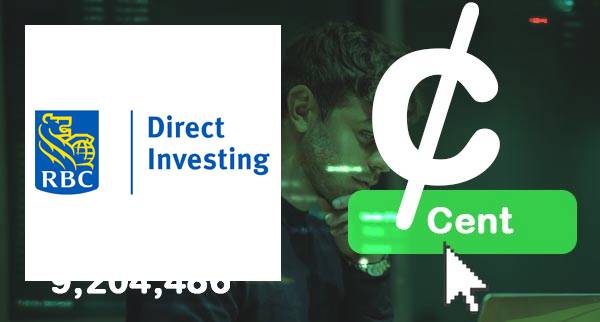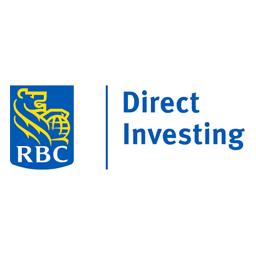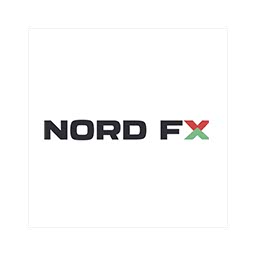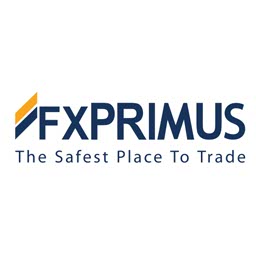RBC Direct Investing do not offer cent trading accounts. For traders looking for a RBC Direct Investing cent account should look at some of our RBC Direct Investing cent account alternatives below.
Within the realm of retail foreign exchange trading, RBC Direct Investing cent accounts alternatives are a specific type of trading account in which the RBC Direct Investing balance is reported in cents rather than dollars. The sole difference between handling RBC Direct Investing accounts dealing in cents and handling accounts dealing in US dollars is in the nominal amounts and size of the denominations that are dealt with when RBC Direct Investing trading. RBC Direct Investing accounts alternatives dealing in cents are handled exactly the same way as RBC Direct Investing accounts dealing in US dollars.
A RBC Direct Investing foreign exchange trading account that is denominated in US cents rather than US dollars is known as a cent account. There are also cent accounts denominated in euros, though their use is significantly less common than RBC Direct Investing accounts alternatives denominated in US dollars. FX brokers are able to use the centesimal units of other currencies as another option for the RBC Direct Investing trading accounts.
RBC Direct Investing cent accounts alternatives quickly became a popular feature and continue to be a permanent offer from a significant portion of brokers. These RBC Direct Investing accounts alternatives were initially created to work around a rather obscure bug in the MetaTrader platform. Even in this day and age, cent-denominated accounts continue to show resilience.

Trading accounts that are denominated in cents are managed in the same manner as standard RBC Direct Investing accounts denominated in USD or EUR. The size of a RBC Direct Investing standard lot, which is typically 100,000 currency units, is reduced down to just 10,000 units. The actual profit or loss incurred from a RBC Direct Investing trade involving one lot is also reduced proportionally.
A RBC Direct Investing trader can operate with as little as 0.0001 standard lot in a cent account using the MetaTrader platform, which is something that would be impossible to do in a USD account without using the platform.
You have to be aware of the fact that trading forex with RBC Direct Investing, despite having the potential to make you money, can actually cause you to lose money. Never risk money that you can't afford to lose when you trade the markets, with RBC Direct Investing. Trading with leverage can wipe out your RBC Direct Investing account even more quickly.
Trading in futures contracts for difference (also known as CFDs) on RBC Direct Investing comes with a significant amount of risk and might not be suitable for all investors. It is important to keep in mind that trading in CFDs is highly leveraged, as RBC Direct Investing CFDs are leveraged products and as a result, losses may be greater than the initial capital that was invested.
Between the RBC Direct Investing demo account and the real money RBC Direct Investing account alternatives have a account known as the cent account. To open a RBC Direct Investing alternatives cent account, you may be required to make a minimum or maximum deposit, as well as satisfy any other prerequisites. You can trade with real money as soon as you reach the 0.0001 of a standard RBC Direct Investing lot minimum position size required to open an available position.
To ensure that RBC Direct Investing customers only make the bare minimum amount of use of their services, the vast majority of Forex brokers that provide this kind of offering place caps on the maximum account and position sizes. Additionally, the RBC Direct Investing quote spreads for cent accounts are wider in order to compensate brokers for the higher costs associated with quoting quotes on behalf of RBC Direct Investing customers.
A great number of people see it as an opportunity to make the leap from a practise RBC Direct Investing trading account to a real, live RBC Direct Investing trading account. All of these things occur without the need for traders to put a significant amount of money at risk with RBC Direct Investing.
When you use a RBC Direct Investing cent account alternative, it means that you are able to evaluate the services provided by the RBC Direct Investing broker on your own with very little financial risk. Because there are typically no restrictions placed on the amount of a RBC Direct Investing deposit that can be made, this facilitates a smooth transition into the foreign exchange trading market with RBC Direct Investing.
When trading Forex with RBC Direct Investing, it is a smart move to experiment with a variety of different trading strategies. Trading strategies can also be tested using the RBC Direct Investing cent account RBC Direct Investing traders employ a wide variety of strategies.
Using a RBC Direct Investing trading account alternative denominated in cents comes with a number of advantages. RBC Direct Investing accounts are designed for individuals who are interested in gaining some knowledge and competence in the Forex market. If you have the goal of amassing enormous profits, you should avoid using RBC Direct Investing account until you have more experience. RBC Direct Investing places restrictions on the maximum number of open positions and the overall RBC Direct Investing account size.
Due to the fact that RBC Direct Investing accounts are linked to the dollar in the United States, the spreads that are associated with it are typically greater than those that are associated with other RBC Direct Investing account alternatives.
RBC Direct Investing focus on providing new traders with other forms of educational resources, such as RBC Direct Investing demo accounts and other types of resources that can assist you in becoming more knowledgeable about trading.
People who have a RBC Direct Investing alternative cent account are able to trade smaller lot sizes than they would be able to with any other account type, and they can open a RBC Direct Investing alternative cent account with a smaller initial deposit. You will need to make an initial deposit of only $0 USD in order to open the RBC Direct Investing alternatives cent account.
Withdrawing money from your RBC Direct Investing alternatives cent account, can be accessed from your RBC Direct Investing alternative dashboard. You will only be able to withdraw to verified RBC Direct Investing payment methods and RBC Direct Investing alternatives cent account withdrawals are processed usually in 3 days. You can complete RBC Direct Investing account withdrawal transactions by utilising the same method of payment that you did for the RBC Direct Investing initial deposit. If you deposited money into the RBC Direct Investing account using a variety of methods, you can cash out your balance using any of the same methods that you used to deposit money to RBC Direct Investing.
You will be required to go through a RBC Direct Investing profile verification process which will involve sending a proof of address and photo ID to RBC Direct Investing. For the protection of both your money and your identity only register and fund cent accounts from financially regulated brokers. Once you have verified your RBC Direct Investing account, and funded the minimum trading balance ( $0 USD ) requirements with RBC Direct Investing, you are ready to trade using your RBC Direct Investing cent account.
You can join RBC Direct Investing and get started on your RBC Direct Investing alternatives cent account trading journey as long as you are over 18, have a verified RBC Direct Investing account and have funded the minimum balance and have educated yourself on the RBC Direct Investing technical analysis and risk management tools. You need to have sufficient knowledge of how assets behave in the financial markets in addition to a RBC Direct Investing brokerage account if you want to trade. To get started, sign up for an RBC Direct Investing account and go over the fundamentals using the free educational materials they provide.
It's possible that opening a RBC Direct Investing cent account is one of the best ways to get started trading forex. The unit of measurement for RBC Direct Investing cent accounts is the cent rather than the dollar. A regular forex trading account and a RBC Direct Investing cent account share a lot of similarities between the two types of accounts. However, there are a number of significant distinctions between a RBC Direct Investing alternatives cent account and a standard account.
The number of nominal funds that are associated with a RBC Direct Investing cent account is the primary characteristic that sets it apart from other types of RBC Direct Investing accounts. If you start trading with five dollars, you will see the value of your initial investment displayed as half a dollar on your RBC Direct Investing trading account.
When it comes to using RBC Direct Investing cent accounts for foreign exchange trading, there are a lot of advantages and disadvantages to consider.
The process of opening a RBC Direct Investing alternatives trading account for cents shouldn't be any more difficult than opening an ordinary RBC Direct Investing trading account. On the other hand, this particular type of account is not provided by all Forex brokers like RBC Direct Investing. It can be difficult for some people to find a trustworthy broker like RBC Direct Investing that is well regulated that provides cent accounts.
Those who are just starting out in foreign exchange trading make up the vast majority of traders who use RBC Direct Investing cent accounts. Because of this, they are having a difficult time deciding which broker to trust and what to focus on while looking for a broker like RBC Direct Investing.
The majority of the time, brokers offering cent accounts like RBC Direct Investing will use trading platforms such as MetaTrader 4 and MT5. Traders who use RBC Direct Investing alternative cent accounts can choose to keep their funds in US dollars or Euros on these platforms.
For newcomers to the Forex market, there are several different kinds of RBC Direct Investing accounts to choose from. A RBC Direct Investing demo trading account is one type of account that you could use instead of the RBC Direct Investing alternatives cent account. However, there are some significant distinctions between these two accounts, and neither one of them is necessarily the optimal choice for novice users.
You have the opportunity to obtain virtual demo cash from when trading foreign exchange with RBC Direct Investing, which you can then use for learning purposes. When using a RBC Direct Investing demo account, there is absolutely no chance of losing any money. You can even use the RBC Direct Investing demo version of the cent account, which gives you the opportunity to practise using RBC Direct Investing trading account tool features.
In actual practise, the transition from a RBC Direct Investing demo account to a standard account can be very challenging for certain individuals. It's possible to make the case that a RBC Direct Investing demo account and a cent account serve essentially the same function. However, there are significant differences between the two that make switching between them extremely challenging.
Transitioning from a RBC Direct Investing practise account to a real-money account in live trading can be challenging for some traders. The primary reason for this is that they are accustomed to dealing with emotional challenges rather than the physical risks that are associated with using a live RBC Direct Investing account, and as a result, they have developed difficulties in overcoming these challenges.
When you open a RBC Direct Investing alternatives cent account, you will be able to participate in real trading activities from the very first moment. Because of this, you won't have to put up a significant sum of money when you first start out in your RBC Direct Investing trading career.
Some brokers like RBC Direct Investing also provide something called "mini trading accounts," which enable customers to engage in financial transactions using an extremely modest sum of capital.
RBC Direct Investing traders are able to enter the foreign exchange market with more manageable size positions thanks to RBC Direct Investing mini trading accounts. When it comes to the lot size for RBC Direct Investing alternatives cent accounts, RBC Direct Investing account permits trading in micro-lots with a minimum value of 0.01 cents in the majority of instances.
Traders can be given a great deal of assistance by making use of a RBC Direct Investing cent account. It will provide you with unrestricted access to a live RBC Direct Investing Forex trading account while exposing you to a minimal level of risk.
If you are interested in learning more about RBC Direct Investing Forex trading, opening a RBC Direct Investing cent account is a good place to get started. You should make an effort to make the most of every opportunity that RBC Direct Investing accounts provide, become accustomed to the functioning of the RBC Direct Investing trading platform, and stay current on all of the details of live financial markets when trading in cents.
Traders who are just beginning their careers in this market are the target demographic for the RBC Direct Investing alternatives cent account. Trading Forex with a RBC Direct Investing alternatives cent account is an excellent way to get started in the market. You won't have to put up a significant amount of capital in order to gain self-assurance with a RBC Direct Investing alternatives cent account. Trading with RBC Direct Investing alternatives cent accounts does hold trading risks, and you must make sure you understand the risks and use risk management like stop loss and negative balance protection offered by RBC Direct Investing.

🤴 RBC Direct Investing is Used By: 10,000
⚡ RBC Direct Investing is Regulated by: CIPF
💵 What You Can Trade with RBC Direct Investing: Forex, Majors, Indices, Energies, Metals, Agriculturals,
💵 Instruments Available with RBC Direct Investing: 100
📈 RBC Direct Investing Inactivity Fees:
💰 RBC Direct Investing Withdrawal Fees: No
💰 RBC Direct Investing Payment Methods:
💰 RBC Direct Investing Account Base Currencies:
RBC Direct Investing Risk warning : Your capital is at risk

🤴 IC Markets is Used By: 180,000
⚡ IC Markets is Regulated by: Australian Securities and Investments Commission (ASIC), Financial Services Authority (FSA), Cyprus Securities and Exchange Commission (CySEC)
💵 What You Can Trade with IC Markets: Forex, Majors, Energies, Metals, Agriculturals,
💵 Instruments Available with IC Markets: 232
📈 IC Markets Inactivity Fees: No
💰 IC Markets Withdrawal Fees: No
💰 IC Markets Payment Methods: Credit Cards, VISA, MasterCard, Debit Cards, Visa, MasterCard, Bank Transfer, PayPal, Neteller, Neteller VIP, Skrill, Poli, Cheque, BPAY, UnionPay, FasaPay, QIWI, RapidPay, Klarna, Electronic wallets (eWallets), Broker to Brokers, Thai Internet Banking, Vietnamese Internet Banking,
💰 IC Markets Account Base Currencies: USD, GBP, EUR, CHF, JPY, SGD, AUD, CAD, HKD, NZD
IC Markets Risk warning : Losses can exceed deposits

🤴 Roboforex is Used By: 10,000
⚡ Roboforex is Regulated by: RoboForex Lid is regulated by Belize FSC, License No. 000138/7, reg. number 000001272
💵 What You Can Trade with Roboforex: Forex, Minors, Majors, Exotics, Indices, Metals,
💵 Instruments Available with Roboforex: 100
📈 Roboforex Inactivity Fees: No
💰 Roboforex Withdrawal Fees: Yes
💰 Roboforex Payment Methods: Credit cards, VISA, MasterCard, JCB, Debit cards, Bank Transfer, Electronic wallets (eWallets), Neteller, Skrill, Perfect Money, AdvCash, BPAY, China UnionPay, FasaPay, CashU, WeChat Pay, ecoPayZ, AstroPay, Sofort, Giropay, Poli, Wepay, iDEAL, Payoneer,
💰 Roboforex Account Base Currencies: USD, EUR, XAU
Roboforex Risk warning : Losses can exceed deposits

🤴 AvaTrade is Used By: 200,000
⚡ AvaTrade is Regulated by: Central Bank of Ireland, Australian Securities and Investments Commission (ASIC), Financial Services Authority (FSA), South African Financial Sector Conduct Authority (FSCA), Financial Stability Board (FSB), Abu Dhabi Global Markets (ADGM), Financial Regulatory Services Authority (FRSA), British Virgin Islands Financial Services Commission (BVI)
💵 What You Can Trade with AvaTrade: Forex, Minors, Cryptocurrencies, Majors, Exotics, Indices, UK Stocks, US Stocks, Energies, Metals, Agriculturals, ETFs, IPO, Bonds,
💵 Instruments Available with AvaTrade: 1000
📈 AvaTrade Inactivity Fees: No
💰 AvaTrade Withdrawal Fees: No
💰 AvaTrade Payment Methods: Credit cards, VISA, MasterCard, Bank Transfer, Electronic wallets (eWallets), PayPal, Neteller, WebMoney, Payoneer,
💰 AvaTrade Account Base Currencies: USD, GBP, EUR, JPY, AUD
AvaTrade Risk warning : 71% of retail CFD accounts lose money

🤴 FP Markets is Used By: 10,000
⚡ FP Markets is Regulated by: Australian Securities and Investments Commission (ASIC), Cyprus Securities and Exchange Commission (CySEC), Financial Services Authority (St. Vincent and the Grenadines)
💵 What You Can Trade with FP Markets: Forex, Minors, Majors, Exotics, Indices, Metals,
💵 Instruments Available with FP Markets: 100
📈 FP Markets Inactivity Fees: No
💰 FP Markets Withdrawal Fees: No
💰 FP Markets Payment Methods: Credit cards, VISA, MasterCard, Debit cards, Bank Transfer, Electronic wallets (eWallets), Neteller, BPAY, POLi, PayPal, Neteller, Skrill, PayTrust, NganLuong VN, Fasapay, Broker to Broker, OnlinePay China, Directa24, Klarna, PayTrust88, Payoneer,
💰 FP Markets Account Base Currencies: USD, GBP, EUR, CHF, JPY, SGD, AUD, CAD, HKD, NZD
FP Markets Risk warning : Losses can exceed deposits

🤴 NordFX is Used By: 10,000
⚡ NordFX is Regulated by: Cyprus Securities and Exchange Commission (CySEC), License No: 209/13
💵 What You Can Trade with NordFX: Forex, Majors, Metals,
💵 Instruments Available with NordFX: 50
📈 NordFX Inactivity Fees: No
💰 NordFX Withdrawal Fees: No
💰 NordFX Payment Methods: Bank Transfer, Neteller, PerfectMoney, WebMoney, FasaPay, CashU, Payza, QIWI,
💰 NordFX Account Base Currencies: USD, EUR
NordFX Risk warning : Losses can exceed deposits

🤴 XTB is Used By: 250,000
⚡ XTB is Regulated by: Financial Conduct Authority (FCA), FCA number FRN 522157, Cyprus Securities and Exchange Commission (CySEC), CySEC Licence Number: 169/12, Comision Nacional del Mercado de Valores, Komisja Nadzoru Finansowego, Belize International Financial Services Commission (IFSC) under license number IFSC/60/413/TS/19, Polish Securities and Exchange Commission (KPWiG), Dubai Financial Services Authority (DFSA), Dubai International Financial Center (DIFC),Financial Sector Conduct Authority (FSCA), XTB AFRICA (PTY) LTD licensed to operate in South Africa
💵 What You Can Trade with XTB: Forex, Minors, Cryptocurrencies, Majors, Exotics, Indices, UK Stocks, US Stocks, Pennystocks, Energies, Metals, Agriculturals, ETFs,
💵 Instruments Available with XTB: 4000
📈 XTB Inactivity Fees: Yes
💰 XTB Withdrawal Fees: No
💰 XTB Payment Methods: Credit cards, MasterCard, Maestro, Visa, Debit cards, Bank Transfer, Electronic wallets (eWallets), PayPal, Neteller, Skrill, Poli, Paysafe, Payoneer,
💰 XTB Account Base Currencies: USD, GBP, EUR
XTB Risk warning : 76% - 83% of retail investor accounts lose money when trading CFDs with this provider. You should consider whether you understand how CFDs work and whether you can afford to take the high risk of losing your money.

🤴 Pepperstone is Used By: 89,000
⚡ Pepperstone is Regulated by: Financial Conduct Authority (FCA), Australian Securities and Investments Commission (ASIC), Cyprus Securities and Exchange Commission (CySEC), Federal Financial Supervisory Authority (BaFin), Dubai Financial Services Authority (DFSA), Capital Markets Authority of Kenya (CMA), Pepperstone Markets Limited is incorporated in The Bahamas (number 177174 B), Licensed by the Securities Commission of the Bahamas (SCB) number SIA-F217
💵 What You Can Trade with Pepperstone: Forex, Minors, Cryptocurrencies, Majors, Exotics, Indices, Energies, Metals,
💵 Instruments Available with Pepperstone: 100
📈 Pepperstone Inactivity Fees: Yes
💰 Pepperstone Withdrawal Fees: No
💰 Pepperstone Payment Methods: Credit cards, VISA, MasterCard, Debit cards, Bank Transfer, Electronic wallets (eWallets), PayPal, Neteller, BPAY, POLi, UnionPay, FasaPay, QIWI, Payoneer,
💰 Pepperstone Account Base Currencies: USD, GBP, EUR, CHF, JPY, SGD, AUD, CAD, NZD, HKD
Pepperstone Risk warning : CFDs are complex instruments and come with a high risk of losing money rapidly due to leverage. Between 74-89 % of retail investor accounts lose money when trading CFDs. You should consider whether you understand how CFDs work and whether you can afford to take the high risk of losing your money

🤴 XM is Used By: 10,000,000
⚡ XM is Regulated by: Financial Services Commission (FSC), Cyprus Securities and Exchange Commission (CySEC), Australian Securities and Investments Commission (ASIC)
💵 What You Can Trade with XM: Forex, Stock CFDs, Commodity CFDs, Minors, Majors, Exotics, Equity Indices CFD, Energies CFD, Precious Metals
💵 Instruments Available with XM: 1000
📈 XM Inactivity Fees: Yes
💰 XM Withdrawal Fees: No
💰 XM Payment Methods: Credit cards, Debit cards, Bank Transfer, Electronic wallets (eWallets), Moneta, ABAQOOS, PRZELEWY24, Neteller, PerfectMoney, WebMoney, UnionPay, FasaPay, CashU, Payza, QIWI, SOFORT, Giropay, Payoneer, Skrill,
💰 XM Account Base Currencies:
XM Risk warning : CFDs are complex instruments and come with a high risk of losing money rapidly due to leverage. 77.74% of retail investor
accounts lose money when trading CFDs with this provider. You should consider whether you understand how CFDs work and whether you can afford
to take the high risk of losing your money.

🤴 FXPrimus is Used By: 10,000
⚡ FXPrimus is Regulated by: Cyprus Securities and Exchange Commission (CySEC), Markets In Financial Instruments Directive (MiFID), Vanuatu Financial Services Commission (VFSC)
💵 What You Can Trade with FXPrimus: Forex, Minors, Majors, Exotics, Indices, UK Stocks, US Stocks, Energies, Metals,
💵 Instruments Available with FXPrimus: 130
📈 FXPrimus Inactivity Fees: No
💰 FXPrimus Withdrawal Fees: Varies
💰 FXPrimus Payment Methods: Credit cards, VISA, MasterCard, Debit cards, Bank Transfer, Electronic wallets (eWallets), Neteller, Skrill, Payoneer, SafeCharge, TrustPay, EmerchantPay, Bitcoin, UnionPay, FasaPay, Giropay,
💰 FXPrimus Account Base Currencies: USD, GBP, EUR, SGD, PLN
FXPrimus Risk warning : Losses can exceed deposits

🤴 easyMarkets is Used By: 142,500
⚡ easyMarkets is Regulated by: Cyprus Securities and Exchange Commission (CySEC), Australian Securities and Investments Commission (ASIC), Financial Services Authority (FSA), British Virgin Islands Financial Services Commission (BVI)
💵 What You Can Trade with easyMarkets: Forex, Minors, Cryptocurrencies, Majors, Exotics, Indices, Energies, Metals, Agriculturals, Options,
💵 Instruments Available with easyMarkets: 200
📈 easyMarkets Inactivity Fees: No
💰 easyMarkets Withdrawal Fees: No
💰 easyMarkets Payment Methods: Credit cards, MasterCard, Maestro, American Express, JCB, Astropay, Debit cards, Bank Transfer, SOFORT, GiroPay, iDeal, Bpay, Electronic wallets (eWallets), Skrill, Neteller, WebMoney, UnionPay, WeChatPay, FasaPay, STICPAY,
💰 easyMarkets Account Base Currencies: USD, GBP, EUR, CHF, JPY, SGD, AUD, CAD, CNY, CZK, HKD, ILS, MXN, NOK, NZD, PLN, SEK, TRY, ZAR
easyMarkets Risk warning : Your capital is at risk

🤴 Markets.com is Used By: 4,000,000
⚡ Markets.com is Regulated by: Cyprus Securities and Exchange Commission (CySEC), Financial Sector Conduct Authority (FSCA), Financial Conduct Authority (FCA), Australian Securities and Investments Commission (ASIC), BVI Financial Services Commission (BVI FSC)
💵 What You Can Trade with Markets.com: Forex, Minors, Cryptocurrencies, Majors, Exotics, Indices, UK Stocks, US Stocks, Energies, Metals, Agriculturals, ETFs, Bonds,
💵 Instruments Available with Markets.com: 2200
📈 Markets.com Inactivity Fees: Yes
💰 Markets.com Withdrawal Fees: No
💰 Markets.com Payment Methods: Credit cards, Debit cards, Bank Transfer, Electronic wallets (eWallets), Skrill, Neteller, PayPal,
💰 Markets.com Account Base Currencies: USD, GBP, EUR, JPY
Markets.com Risk warning : 67% of retail investor accounts lose money when trading CFDs with this provider. You should consider whether you can afford to take the high risk of losing your money
If RBC Direct Investing isn't quite what you are looking for you can check out some of the best RBC Direct Investing alternatives below.
If you would like to see RBC Direct Investing compared against some of the best RBC Direct Investing Account alternatives available right now you can do so by clicking on the links below.